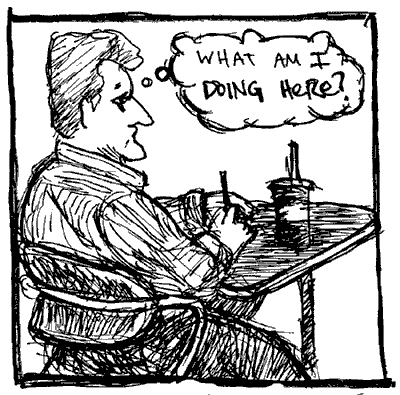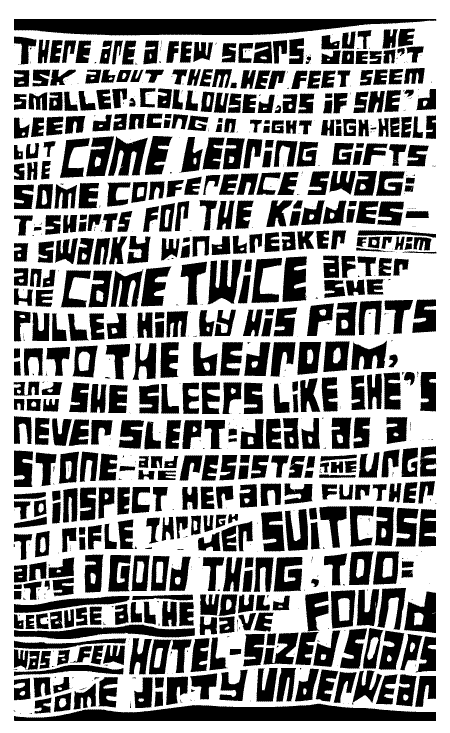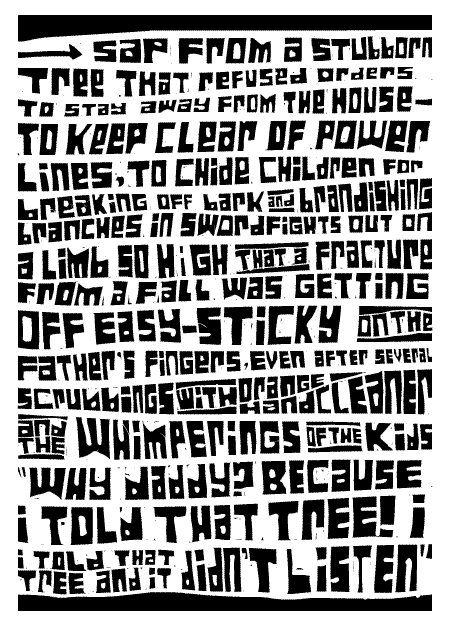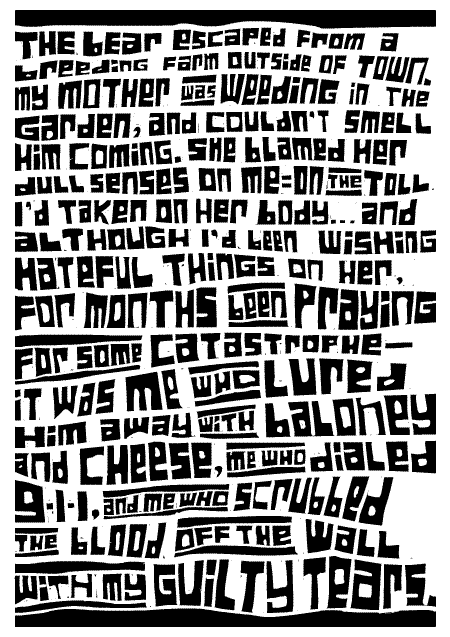Give every book 50 pages before you commit to it, or give it up. Time is too short to read something you don’t like.– Nancy Pearl

We walked out of the Walkmen show at the Beachland last night after three or four songs. The sound was atrocious. They were so loud that Meg and I walked out to the front hall to listen, and even after that, Leithauser was screaming so much into the microphone that it was pretty much unlistenable.
Since when did he decide shrieking was better than crooning? Whatever happened to their dynamics? Their textures? How could a great band do this to their sound?
I was really surprised, because I’ve seen them a few times. The first show I saw of theirs at the Southgate House in Kentucky was amazing. It was like a stereo swirl around your head: there was buildup, there was subtlety, and you could hear each instrument.
Part of me wants to say that the Beachland’s soundsystem is too damned loud for the place. Part of me wants to blame the soundman. But I know that the music just isn’t for me anymore. Watching them on stage, I saw no attempt to bring me into the music, to share something with me. That really turns me off.
I don’t want to be screamed at. I don’t want my ears to bleed for five days. I just want a good beat, a little wisdom, a little mystery. Cue the Van Morrison, please.
Regardless, it was my first time at the Beachland, and before the music started, I had a great time. They’ve got a good bar, and a great jukebox. Music Saves is right around the corner, and we bought some LPs we’d been meaning to get. (On a side note: I saw that Calexico is doing what I’ve always thought bands should do: if you purchase their new LP, they include a secret code you can redeem so you can download the MP3s for free.) And I love Jon Hicks’ screenprint posters that they have hanging on the wall.
The bottom line is this: don’t like what you’re hearing? Leave. Life is too short. Cut your losses. Take your woman home, make some gram crackers and milk, and watch a Sopranos.



